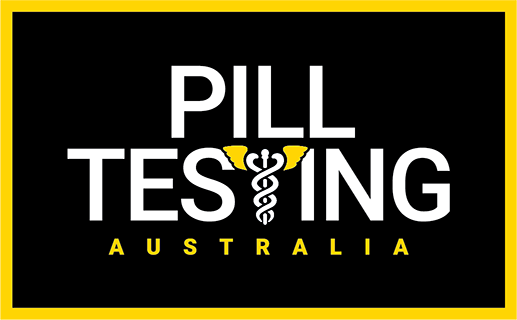Advocacy
Pill Testing Australia is committed to informing and educating the wider public and key decision makers on what pill testing services actually do – as opposed to what is often claimed we do by those opposed to pill testing – and the benefits that can result from pill testing.
Our consortium prepares submissions to parliamentary inquiries on drug issues; corresponds with senior levels of government in all jurisdictions on issues and advancements in the pill testing arena; and regularly appears in the media advocating for greater awareness, understanding and support for pill testing.
Intervention
While patrons are waiting for the testing results they are directed to a brief Intervention with a peer-based AOD counsellor. The brief intervention involved discussion around the harms associated with drug use, answering questions patron may have about both their individual drug use, the compounds being detected by the drug testing.
Open Science
We are committed to open science which includes evaluating our practice and releasing research information and data to the wider community.
Our evaluations do not receive funding from either the industry or from government. We do receive in-kind support from Bruker Corporation who provide the drug testing machine(s).
In April 2018 we undertook an operational evaluation of our practices to assist further development of our pill testing model. This model provided for on-site pill testing at the actual festival. Results from that evaluation are available at: https://www.harmreductionaustralia.org.au/wp-content/uploads/2018/06/Pill-Testing-Pilot-ACT-June-2018-Final-Report.pdf
In November 2018 we will undertake a provision of pill testing off-site. There will be both an operational evaluation, and a research evaluation which will apply the Utilisation-focused Evaluation model. The research evaluation team will be led by Anna Olsen (The Australian National University) and the report will be available on our website.
Members routinely give talks, discussions and advice to enquiries. Examples include:
‘Harm Reduction’ — Guest Lecture ANU, Alcohol, Drugs and Crime: Promoting Health and Preventing Consequences, May 2018, Toni Makkai
‘Responses to drugs by governments and community organisations’ – Lecture La Trobe University, Drug Use and Addictive Behaviours, Penny Hill
‘Pill Testing: The Australian Way’- presentation at Yarra Drug Health Forum AGM, Gino Vumbaca
Our Model
Our consortium has developed the ‘medical model’ of pill testing. The intervention is conducted within the medical precinct of a musical festival, under the direct medical supervision of senior medical clinicians, who have extensive experience of the music festival environment. The analyses are conducted by teams of independent academic analytical chemists, licensed to handle Schedule (and presumed Schedule 9 products). The clinicians and chemists work hand-in-hand with carefully selected peer educators, many of whom have had international experience of pill testing in Europe and North America.
This model allows a formal interface with both law enforcement and healthcare, both at the festival and at the public health level, if required.
Our Approach
Typically, we provide chemical on-site analysis of individual drugs brought in by the individual. The person is provided with an on-site analysis by people trained in the use of the testing equipment. The person is also provided with information about the risks of consuming the substances identified, education of harm reduction strategies to mitigate that risk, and other services including health and community service referrals.
Testing
At one level, what we do is simple.
People considering using a pill or other drug can see us to have them tested to discover what it is they may really be taking.
As part of this process we will provide a range of information to help people make an informed decision about what they are about to do; understanding the risks better and what to do in the event of any adverse outcome.
We never advise people it is safe to take drugs
We never promote the consumption of drugs
We don’t judge people for the decisions they make in regard to drug use
